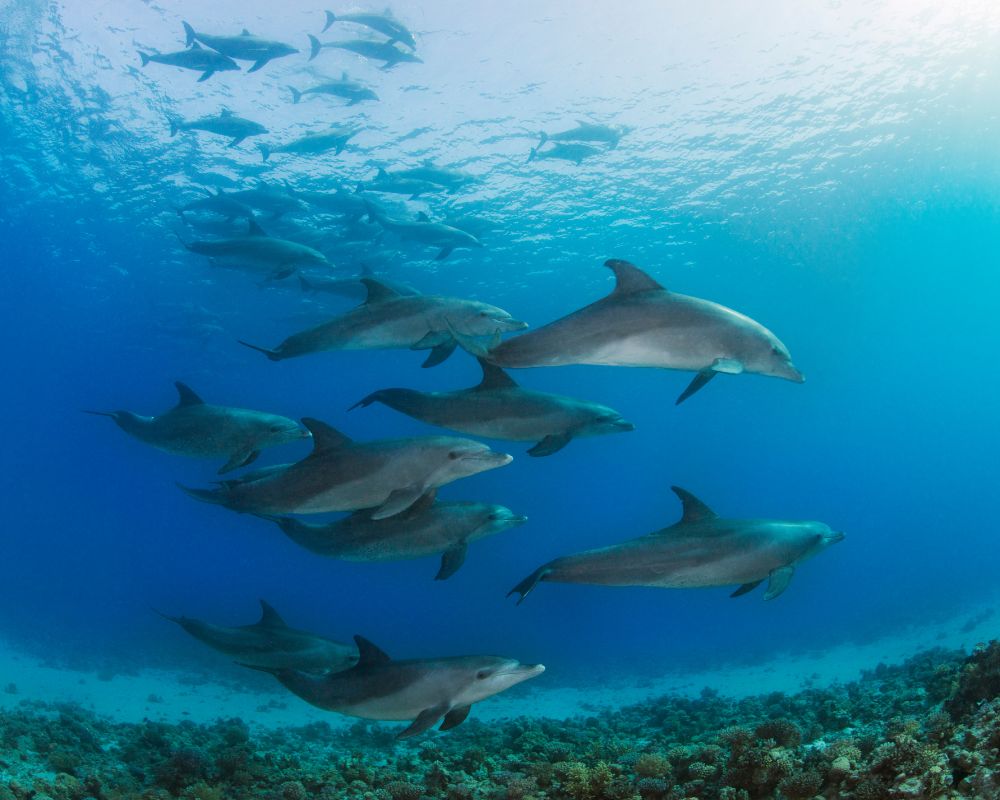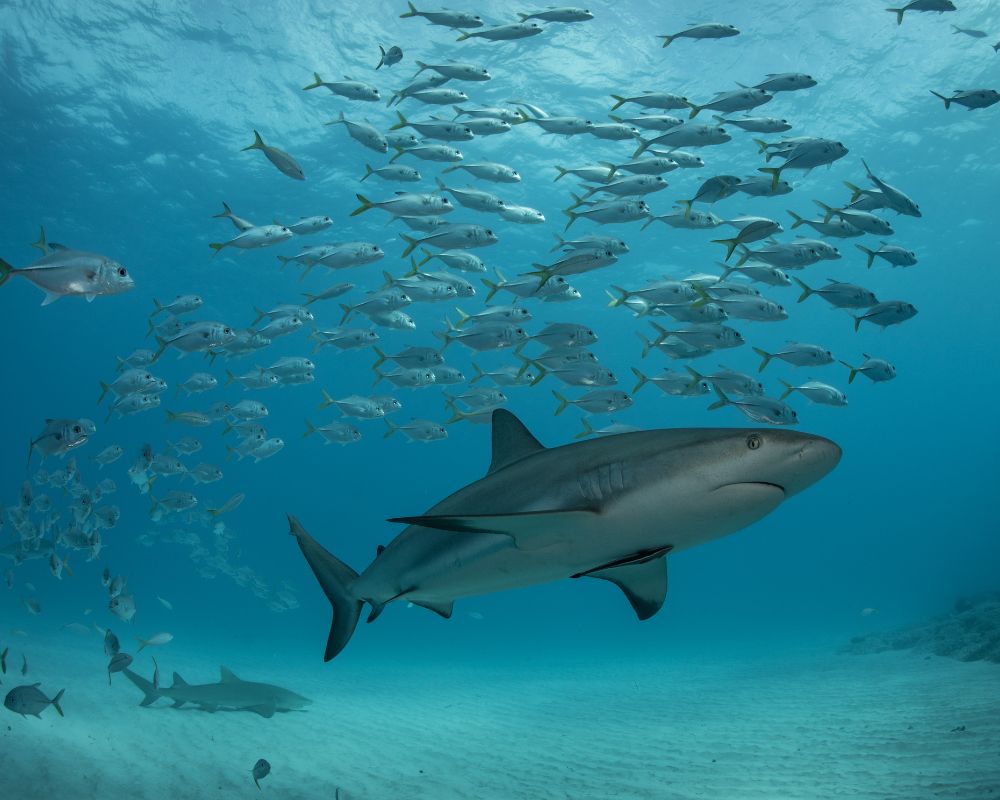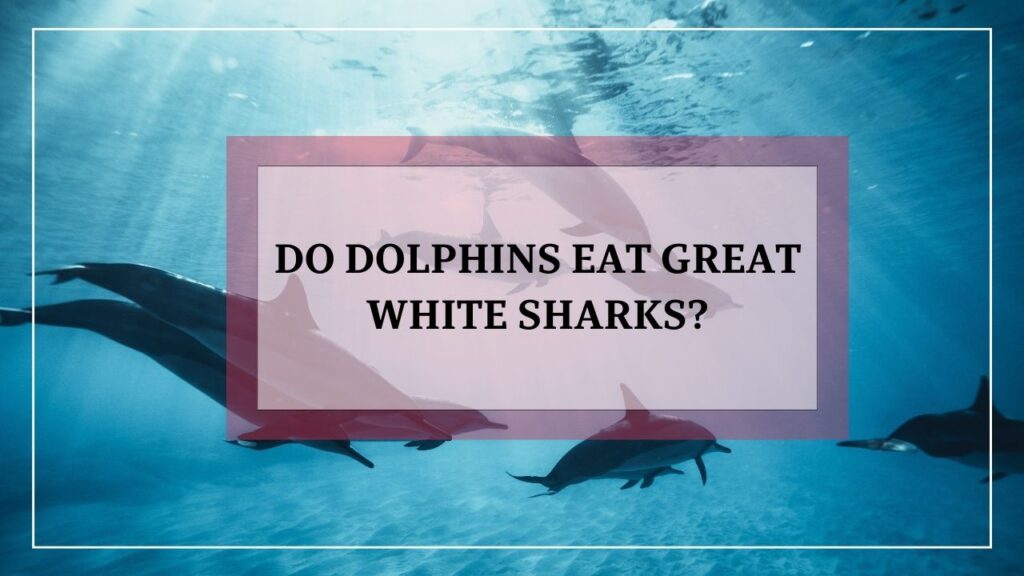Marine life has always been a fascinating subject for both scientists and enthusiasts alike. The ocean is home to a diverse range of creatures, each with their unique characteristics and habits. Among the most iconic of these are the dolphins and the Great White Sharks.
Both species are known for their intelligence, strength, and predatory nature. It is no wonder that people often wonder about the relationship between these two creatures, and whether dolphins eat Great White Sharks.
In this blog post, we will explore the topic in detail, discussing the general diet of dolphins and Great White Sharks, their behavior towards each other, and whether there have been any documented cases of dolphins eating Great White Sharks.
We will also look at the relationship between Great White Sharks and dolphins and whether Great White Sharks eat dolphins. By the end of this post, you will have a better understanding of these fascinating creatures and their interactions with each other. So, let’s dive in!
Do Dolphins Eat Great White Sharks?


The short answer is no, dolphins do not typically eat Great White Sharks. But let’s take a closer look at the topic.
Research Studies about Dolphins and Great White Sharks
There have been many research studies on dolphins and Great White Sharks, but none have reported dolphins eating Great White Sharks as a part of their regular diet. In fact, the diet of dolphins typically consists of fish, squid, and crustaceans. However, there have been rare cases where dolphins have been known to attack and kill sharks, including Great White Sharks.
While dolphins are generally peaceful creatures, they have been known to exhibit aggressive behavior towards sharks. In fact, there have been instances where dolphins have been seen attacking sharks, including Great White Sharks. However, these instances are not common, and it is believed that they only occur under certain circumstances.
Reasons Behind Dolphin Aggression Towards Sharks
There are a few reasons why dolphins may exhibit aggression towards sharks. One reason is that dolphins may be protecting their territory or their young. Another reason is that dolphins may view sharks as a potential threat and are simply defending themselves. It’s also possible that dolphins may be competing with sharks for food resources.
While it is rare for dolphins to kill sharks, there have been documented cases of this happening. In one case, a group of dolphins was observed attacking and killing a small shark. However, these incidents are rare, and it’s important to remember that dolphins do not typically eat Great White Sharks or other types of sharks as a part of their regular diet.
Do Dolphins and Great White Sharks Coexist?
The short answer is yes, dolphins and Great White Sharks do coexist in the same geographic regions. However, their interactions can vary depending on a few factors.
Dolphins and Great White Sharks both have a wide range of distribution and can be found in many of the same areas around the world. Great White Sharks are typically found in temperate and tropical waters, while dolphins can be found in a variety of habitats, from shallow coastal waters to deep offshore waters. Some of the places where dolphins and Great White Sharks overlap include the coasts of California, South Africa, and Australia.
There have been many documented instances of dolphins and Great White Sharks interacting with each other in the wild. In some cases, dolphins have been seen swimming and playing around Great White Sharks, seemingly unafraid of the large predators. In other cases, dolphins have been seen aggressively attacking and chasing away Great White Sharks.
Predatory Relationship between Dolphins and Great White Sharks
While dolphins and Great White Sharks do coexist in the same areas, they have a predatory relationship. Great White Sharks are known to prey on dolphins and other small marine mammals, while dolphins are known to be one of the few animals that can defend themselves against sharks. Dolphins have been known to attack sharks in order to protect their young or their territory.
Reasons Why Dolphins Do Not Eat Great White Sharks
While Great White Sharks are known to prey on dolphins, the reverse is not true. There are a few reasons why dolphins do not eat Great White Sharks.
1. Feeding Behaviour of Dolphins
Dolphins are opportunistic feeders and will eat a variety of prey, including fish, squid, and crustaceans. However, they are not known to eat other large marine predators like sharks. Instead, dolphins tend to hunt in groups and will work together to corral and catch schools of smaller fish.
2. Anatomy of Dolphins and Great White Sharks
Another reason why dolphins do not eat Great White Sharks is due to their differences in anatomy. Dolphins have a long, slender snouts with sharp teeth designed for grasping and tearing apart small prey.
Great White Sharks, on the other hand, have a wide, triangular-shaped heads with rows of razor-sharp teeth designed for tearing apart larger prey. The anatomy of dolphins simply isn’t suited for hunting and eating large predators like Great White Sharks.[1]
There is also scientific evidence that supports the lack of predation by dolphins on Great White Sharks. In a study, researchers analyzed the stomach contents of over 200 stranded dolphins and found no evidence of Great White Shark remains.
Similarly, a study published in Marine Mammal Science found that while dolphins do occasionally interact with Great White Sharks, these interactions are not typically predatory in nature.
Reasons Why Great White Sharks Do Not Eat Dolphins
While dolphins may not eat great white sharks, it’s also important to consider why the opposite is true: why don’t great white sharks eat dolphins? Despite their reputation as fearsome predators, great white sharks actually have a much more varied diet than you might expect. In fact, they are known to eat a wide range of marine animals, including fish, sea turtles, seals, and even whales.
But when it comes to dolphins, great white sharks are not typically their first choice of prey. One reason for this is that dolphins are extremely agile swimmers and are known for their ability to outmaneuver potential predators. Additionally, dolphins often travel in pods, which makes them a much more challenging target for a solitary great white shark.
Another factor that may play a role in the lack of predation by great white sharks on dolphins is the anatomy of the two animals. While great white sharks have large, powerful jaws filled with rows of sharp teeth, they are not well-suited for capturing and consuming dolphins.
Dolphins, on the other hand, have a slender, streamlined body shape that allows them to move quickly through the water, and they also have a set of powerful teeth that they can use for defense if necessary.
There is also scientific evidence to suggest that great white sharks may not be particularly interested in preying on dolphins. In a study conducted off the coast of South Africa, researchers found that great white sharks were much more likely to target seals and other prey species and that they only attacked dolphins in rare cases.

